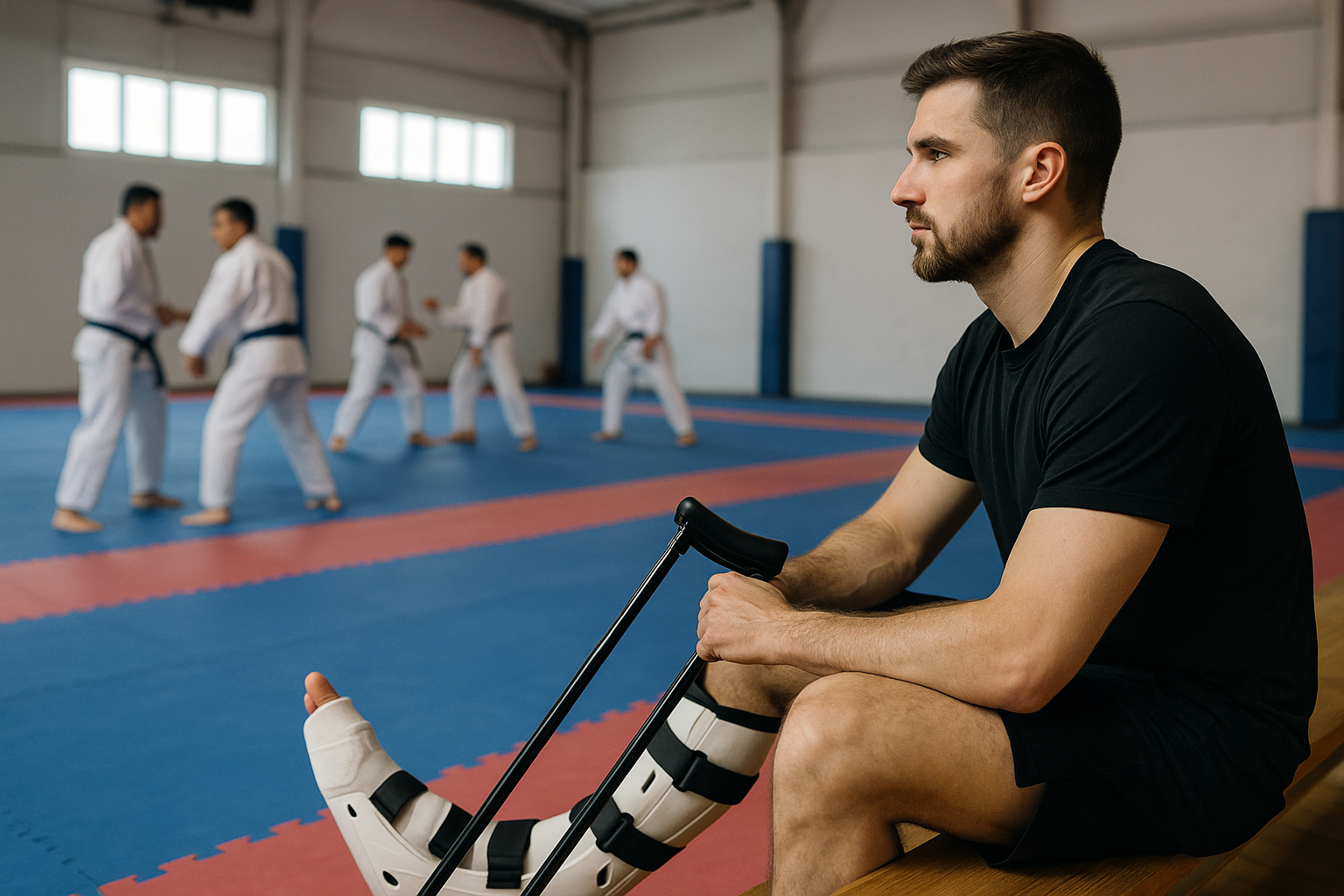Injuries and illnesses can derail even the most consistent performers—but only if we let them. To recover intentionally means treating recovery not as a passive timeout, but as an active process, a day job, and an opportunity for growth—mentally, physically, and even socially.
Whether you’re a weekend warrior or a high performer, your ability to adapt, engage, and track what works will define how fully—and how resiliently—you bounce back.
🔹 1. Recovery Is Your New Day Job
“There’s nothing more important in your life right now than getting better.”
When you’re facing an acute injury or illness, everything else takes a backseat. Recovery isn’t what you do after your work—it is your work.
By reframing your recovery as your top priority, you can:
- Schedule and structure rehab like you would a job.
- Prioritize nutrition, sleep, and mobility with purpose.
- Eliminate distractions that compromise healing.
- Take ownership of your outcome—no one else will.
Clinical Support:
Research confirms that interdisciplinary rehab that treats recovery like full-time focus improves outcomes significantly. Framing your mindset in this way fosters resilience and better self-management.
🔹 2. Build Your Personal Recovery Playbook
“If something works—write it down.”
The body speaks. Learn to listen.
One of the best things you can do during recovery is to track what works. Every recovery is a goldmine of data—how you felt, what sped up progress, what slowed it down. Keep a log and you’ll be better prepared for the next inevitable setback.
Start a Recovery Log:
- Record your symptoms and improvements.
- Log exercises, treatments, and responses.
- Document nutrition and sleep habits.
- Reflect on mental and emotional patterns.
- Save what works. Skip what doesn’t next time.
Evidence:
Goal-setting studies show that logging and journaling progress improves adherence and reduces time lost. Tracking builds self-awareness—and better outcomes.
🔹 3. Protect Your Habits, Even When You Can’t Train
“I still showed up to martial arts class—even when I couldn’t train. I watched, learned, and stayed consistent.”
One of the greatest threats during recovery is losing the habits you’ve spent years building. It’s easy to stop showing up. To disappear. To disconnect.
That’s why I made a choice: even when I couldn’t train physically, I still showed up.
- I watched technique from the sidelines.
- I gained new perspective by seeing it 3rd-person.
- I kept my ritual of showing up intact.
- And most powerfully—my presence inspired others to do the same.
Clinical Backing:
- Motor imagery and observation activate similar brain pathways as physical movement—meaning even watching helps you improve.
- Team support and presence reduce isolation, boost morale, and improve adherence to rehab.
🔹 4. Leadership Starts with Presence
When I showed up to class injured, something interesting happened:
Other students—who might’ve skipped—felt accountable.
They saw I was there. They came too.
This is the ripple effect of intentional recovery. You don’t just heal—you raise the standard around you. Even in a weakened state, you can lead.
“Recover intentionally—and others will follow.”
🔹 5. The Recovery Mindset – A Quick Recap
| 💡 Principle | 💪 Practice |
|---|---|
| Recovery is your day job | Structure your day around healing |
| Track what works | Build your personal recovery journal |
| Stay in routine | Attend practice or class—even as an observer |
| Learn while sidelined | Use observation to sharpen technique |
| Inspire others | Let your presence create accountability |
🔗 Bonus Resources to Guide Your Recovery
| Topic | Link |
|---|---|
| Active Rehab Philosophy | Rehab is Training in the Presence of Injury |
| Goal-Setting Psychology | Goal-Setting Study |
| Mental Practice Benefits | Motor Imagery & Learning |
| Social Support in Injury | Team Rehab Culture |
| Whole Body Recovery | Neurobiological Benefits of Exercise |
| Strength-Based Rehab | Progressive Training in Recovery |
✅ Final Thoughts: Injuries Are Not Setbacks—They’re Setups
You’re not falling behind—you’re laying a new foundation.
When you recover intentionally, you don’t just bounce back. You come back sharper, stronger, and more self-aware.
So keep the routine. Show up even when it’s hard. Track what works. Treat your healing as your mission.
Because that’s how you turn a weakness into your next strength.

